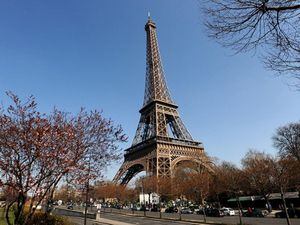Paris pushes forward with one car-free day a month following successful annual event
French capital will ban cars from its city centre on the first Sunday of every month

Paris’s city centre will be a car-free zone on the first Sunday of every month, after a successful trial scheme. The move is intended to improve air quality and result in more footfall in the capital’s public spaces.
The first car-free day will take place on October 7 and will see most motorised transport banned from the centre between 10am and 6pm. Local residents, delivery vehicles, public transport and taxis will be allowed to enter and leave via designated access points, while pedestrians, bikes, scooters and rollerblades will be allowed unimpeded access.
Vehicles will also face a maximum speed restriction of 20km/h (12mph). Major roads, such as the Boulevard Sebastopol, will remain open to usual traffic.
Paris has held a single, annual car-free day since 2015, and the success of this has led to the city pressing forward with its monthly scheme.
The scheme is already in place in several areas of the city but will now be rolled out to the 1st, 2nd, 3rd and 4th arrondissements (districts) – those which comprise the city’s centre north of the Seine river.
Mayor of the city Anne Hidalgo said: “This measure, eagerly awaited by the inhabitants, is the fruit of an important partnership between the prefecture of police, mayors of the districts and neighbourhood associations.”
This isn’t the only air quality scheme Hidalgo has been championing. During her tenure, Paris announced that all diesel vehicles would be banned from its streets by 2024, and owners were offered up to 6,000 euros (£5,312) to trade in their diesel vehicles for a cleaner model.
Hidalgo also spearheaded a study to determine the feasibility of making public transportation free across the whole city.
Car use in Paris has been on the decline for a while, though, and France 24 reported that car use within the city has dipped by 45 per cent since 1990.





